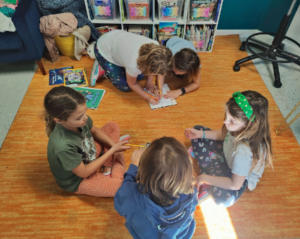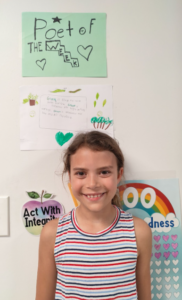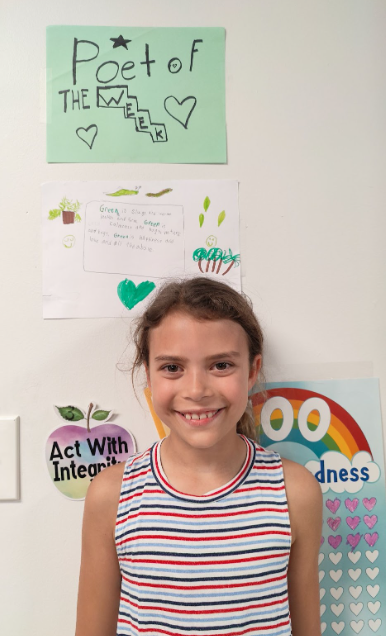As an Indi-ED teacher, I’m always on the lookout for new ways to engage my students and nurture their love for learning. One approach that has been greatly successful is integrating poetry into our curriculum. From 6 to 11 year olds, the impact of our poetry unit extends far beyond the classroom, enriching my students’ language skills, creativity, and emotional intelligence.
Here are some of the benefits I’ve witnessed firsthand:
- Language Development: Poetry is a linguistic playground where students can experiment with words, sounds, and rhythms. By engaging with various poetic forms such as rhymes, alliterations, and metaphors, students enhance their vocabulary and grasp of language structure. Even the youngest learners begin to notice patterns and play with language in ways that foster a fondness and understanding of words.

- Creativity Unleashed!: Poetry unleashes the endless creativity that lies in every child. Through writing their own poems, students explore their thoughts, feelings, and experiences in a safe and expressive manner. Every type of poem we study and create becomes a reflection of their unique voice and perspective, whether its sharing deep feelings, creating a fun rhythm with their words as we clap along with the beat, or finding the perfect onomatopoeia word to bring it all together. Witnessing their creativity grow is a joy that never ceases to inspire me as a teacher.
- Critical Thinking Skills: Analyzing poetry requires students to engage in critical thinking as they decipher meanings and interpret authors’ perspective and intentions. Through close reading and discussion of both classic and contemporary poems, students develop analytical skills that are transferable across various subjects. These skills not only deepen their understanding of literature but also grow their confidence as readers in all genres!
- Emotional Expression and Empathy: Poetry is a powerful tool for emotional expression and empathy-building. As students explore themes of emotions, friendship, struggles, and triumphs through poetry, they develop a deeper understanding of their own emotions and those of others. Through writing and sharing personal poems, students cultivate empathy and compassion as they connect with the experiences and emotions of their peers. My class particularly enjoyed connecting their personal feelings and opinions to different colors of the rainbow. What could have been seen as a simple exercise was a 3-day-long discussion and production of expressing themselves through words and imagery.
- Confidence and Self-Expression: Engaging with poetry grows confidence and self-expression in students of all ages. As they perform poems aloud and celebrate one another’s creations, students discover the power of their own voices. This sense of empowerment goes beyond the classroom, giving students the communication skills and self-assurance they need to thrive in all areas of their lives.

Incorporating a poetry unit into the curriculum has undoubtedly enriched the educational experience of my students. Beyond academic achievements, poetry gives us an appreciation for language, creativity, and empathy. As educators, it is our privilege to nurture the hearts and minds of our students, and poetry provides a rich and rewarding avenue for doing just that. So let’s continue to celebrate the power of poetry in our classrooms, inspiring the poets and thinkers of tomorrow. Happy Poetry Month!


